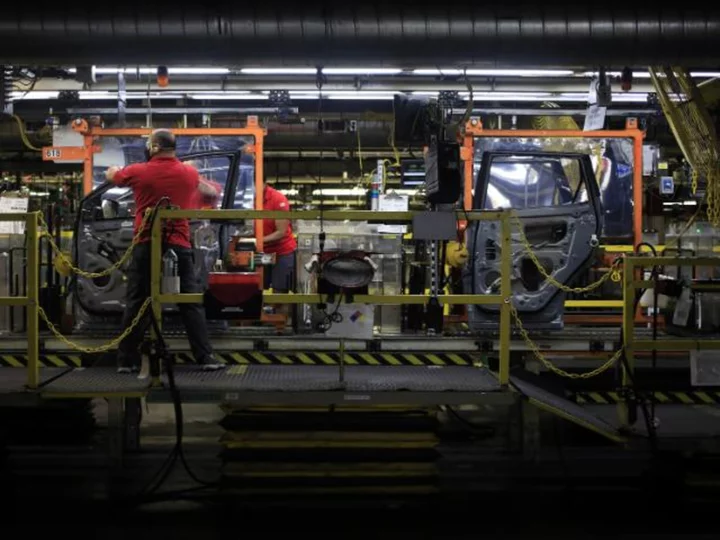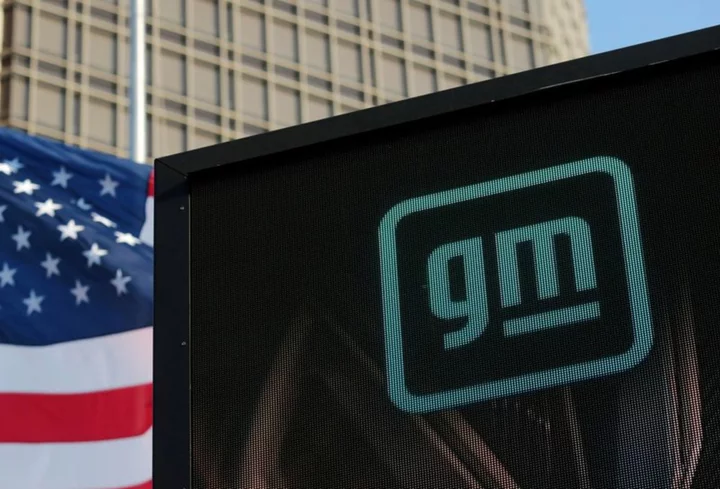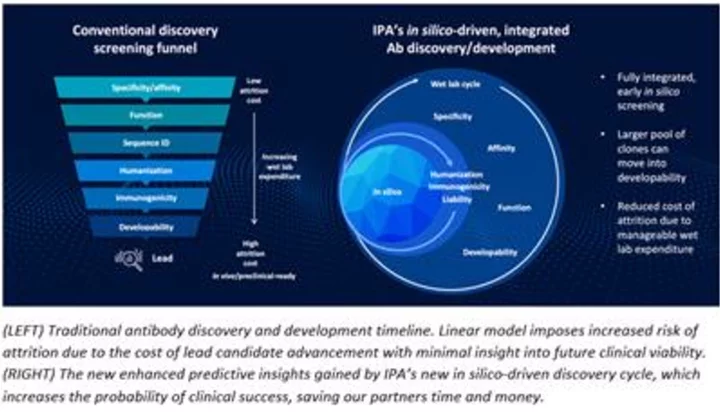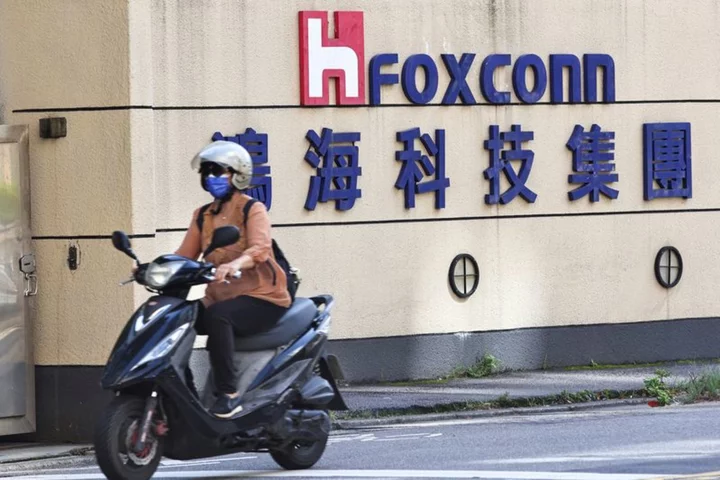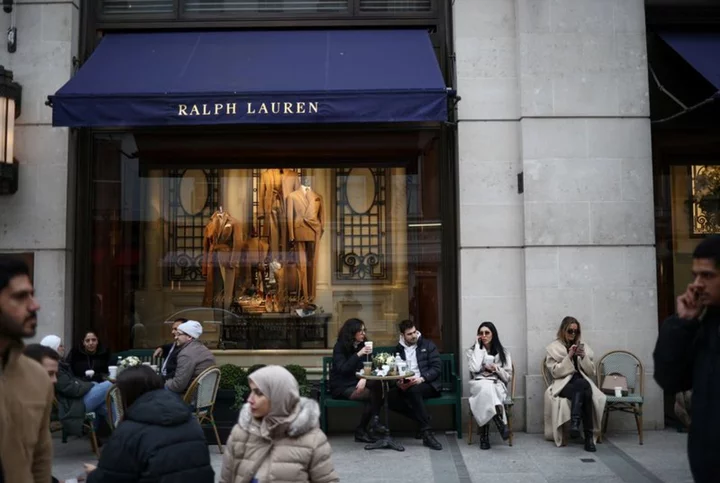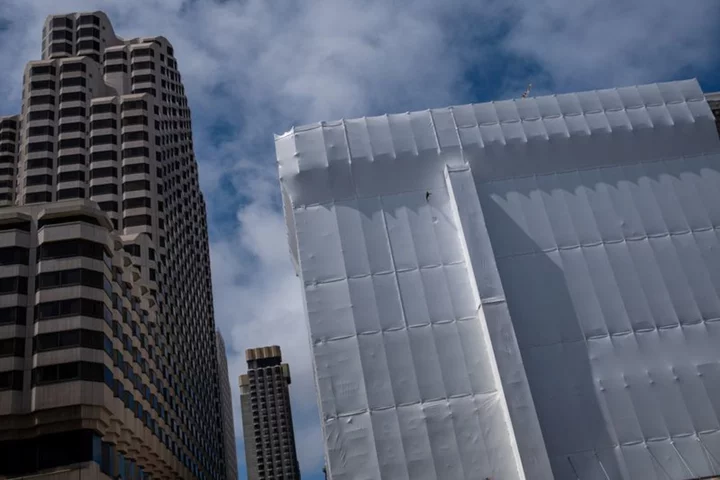Looming over the United Auto Workers strike: Automakers' continued migration to the anti-union South.
Beginning in the 1970s and 1980s, the auto industry began shifting South, a region long characterized by hostility to labor unions and by low wages.
Since then, assembly lines of higher-paid UAW workers at Detroit's Big Three -- Ford, General Motors and Stellantis -- have shrunk. And automakers such as Volvo, Mercedes-Benz, BMW, Toyota and Hyundai have steadily hired nonunion autoworkers, who make less money for substantially the same work, in the South.
"The auto industry's move south hangs over these talks because now only a minority of workers are in unionized assembly plants," said Stephen Silvia, a professor at American University and author of "The UAW's Southern Gamble: Organizing Workers at Foreign-Owned Vehicle Plants." While all of the Big Three's plants are unionized, not a single plant in the South is unionized.
Automakers' transition to electric vehicles is accelerating these regional trends. Ford and GM are building battery plants below the Mason-Dixon Line, where states have laws that make unionization much harder than in the traditional working-class bastions of the Midwest.
UAW leaders and union supporters worry the shift will lower compensation and cut out unions from the auto industry's future, and they are seeking to address these concerns in talks with the Big Three.
Almost as alarming for the UAW is that EVs require fewer parts and, accordingly, less labor to assemble than gas-powered cars. Jobs at nonunion EV battery facilities pay less than the roughly $32 an hour that veteran UAW workers make.
"The balance is shifting in favor of the Southeast over the Midwest," S&P Global Market Intelligence said in a recent report on auto industry jobs. "The South is poised to take a greater portion of US vehicle production in the years ahead."
Shifting power center
Detroit was the heart of the US auto industry for most of the 20th century, but the South has loomed larger since the 1970s.
Lured by tax incentives, lower wages and land costs, and a political climate opposed to unions, foreign automakers built plants in the South, which previously had a small auto presence.
Nissan opened a plant in Smyrna, Tennessee, in 1983. BMW opened in Spartanburg, South Carolina, in 1994. Mercedes-Benz came to Vance, Alabama, in 1997. Honda moved to Lincoln, Alabama, in 2001. Volkswagen, Toyota, Hyundai and Kia built factories the South in the 2000s.
"Almost every foreign auto factory that's opened since the '90s has sprouted below the Mason-Dixon Line," CNN reported in 2007. The trend has continued since then.
As the Big Three shrank into much smaller versions of themselves, losing large amounts of market share to the foreign transplants, the UAW shrank with it.
UAW membership peaked in 1979 at 1.5 million, according to the union. Last year, it had 383,000 autoworkers.
The UAW, with its stronghold in the union-friendly Midwest and northern states, has struggled to unionize autoworkers in the South, decades after the foreign auto plants went up in the region.
"It's been a huge constraint on UAW, and they're trying to break out of it," said Nelson Lichtenstein, a labor historian at the University of California, Santa Barbara, and author of "Fabulous Failure: The Clinton Presidency and the Transformation of American Capitalism," which published this year.
The UAW initially encouraged Japanese and Korean car manufacturers to enter the United States, believing it could unionize plants in the South. But it ran into labor laws tilted against unions, such as so-called right-to-work laws that allow workers to opt out of paying fees to a union, even if they benefit from a union bargaining agreement, and Southern Republican leaders determined to block unions, Lichtenstein said.
The union has tried and repeatedly failed to gain a foothold at Nissan and Volkswagen in Tennessee, Toyota in Kentucky, Mercedes-Benz in Alabama, and other foreign-owned plants in the South. Tennessee Gov. Bill Lee in 2019 even visited Volkswagen's plant in Chattanooga to encourage workers to reject the union. Former South Carolina Gov. Nikki Haley, now a contender for president, said in 2015 she was a "union buster" when recruiting automakers to the state.
Since 1990, the South's share of auto jobs has doubled from around 15% to 30% today, according to S&P Global Market Intelligence.
Meanwhile, the Midwest's share has declined from 60% to 45%.
EV jobs
The transition to electric vehicles is poised to speed up this trend. Mostly nonunion EV jobs and manufacturing investments are surging in Southern states led by Republicans.
Automakers have announced around $83 billion in EV investments and 95,000 jobs in five Southern states -- Georgia, Tennessee, South Carolina, Kentucky and North Carolina -- since 2015, according to a recent report by the Environmental Defense Fund, well surpassing planned EV investments and job creation in the Midwest.
Georgia attracted three of the top six projects by planned investment and the top two by planned jobs. The South has picked up 66% of planned EV jobs, while projects in Midwestern states such as Michigan, Indiana, Kansas and Ohio have combined for 26% of planned jobs, according to S&P Global.
The Big Three and other auto companies are also speeding up EV investments in the South with joint-venture agreements with foreign battery manufacturers. These joint venture agreements aren't covered by UAW contracts.
That has been one sticking point in negotiations between UAW and the Big Three automakers. Ford, for example, has already poured billions into battery plants in Kentucky and Tennessee that will produce EV batteries and trucks.
And as automakers are getting government loans and subsidies to build these plants in the South, the UAW wants the Biden administration and federal agencies to impose stipulations on those loans that would make it easier to unionize the plants. The UAW has thus far declined to endorse Biden's 2024 reelection bid, in part to put pressure on his administration for what the union calls a "just transition" to EVs.
"The EV transition must include strong union partnerships with the high pay and safety standards that generations of UAW members have fought for and won," UAW President Shawn Fain said recently.

